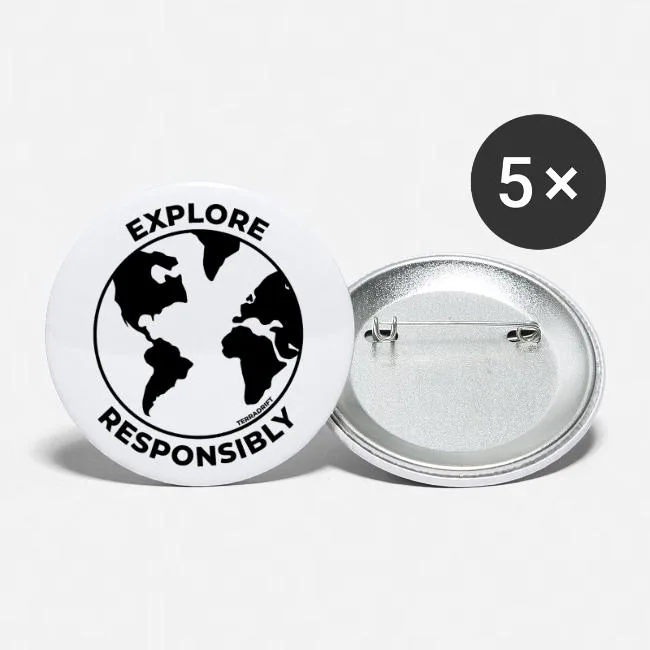The Best Deals on Camping, Backpacking and Outdoor Gear [May 2025]
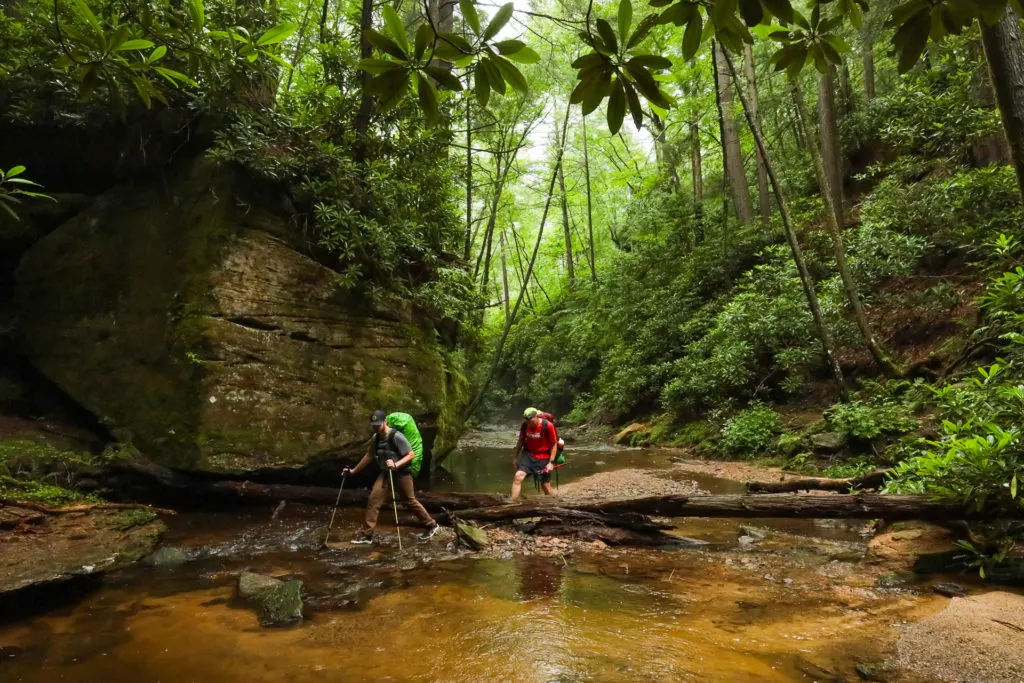
We’ve all been new at something at some point in our lives. And chances are, we weren’t great at that something right out of the gate. There’s a learning curve with most activities that can only be gained through experience. And that includes backpacking. But if you’re new to shouldering a pack and hiking off into the woods to spend a few nights under a canopy of trees, we’ve got your back. Here are 5 mistakes beginner backpackers make (so you can get them right and stop looking like such a noob).
5 Mistakes Beginner Backpackers Make
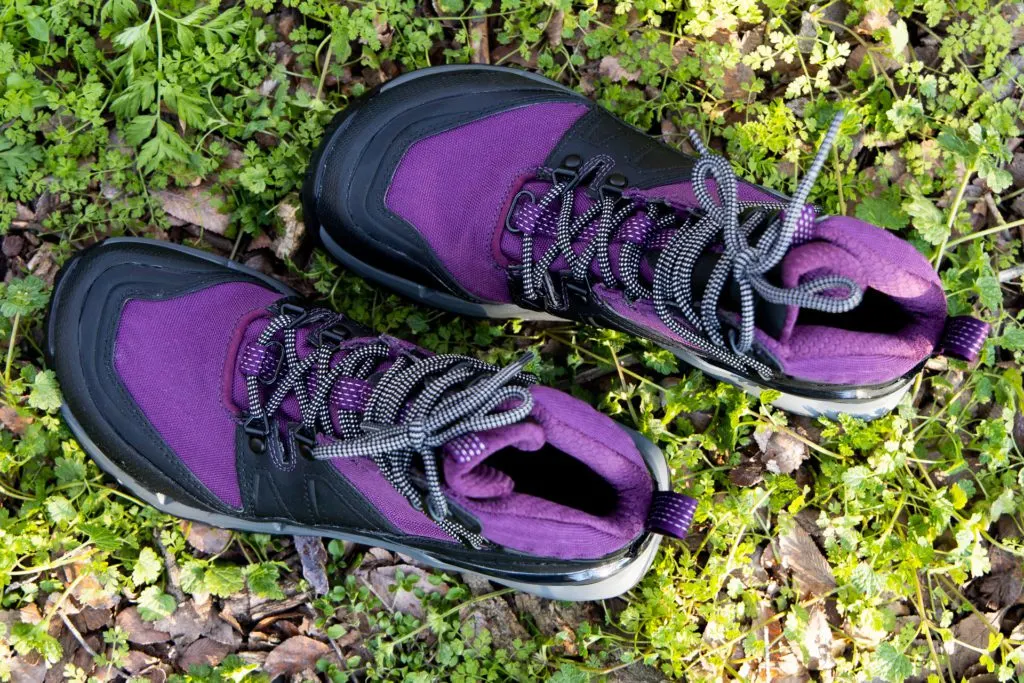
1. They Don’t Break in their Boots
No matter what kind of hiking shoes or boots you wear, a multi-day backpacking trip should not be your footwear’s first trip into the outdoors. Your boots need to be broken in, son! That goes less for synthetic hiking boots than for leather boots, and less for trail-runner style shoes than over-the-ankle boots, but the principle remains the same: if your boots are too big/too small/too stiff/too loose/pinchy/rubby/otherwise uncomfortable in any way and you don’t realize it until you’re 10 miles away from a trailhead, you’re out of luck and you’re going to have to hike all the way back with boots that are giving you blisters/crushing your toenails/bruising your ankles/making your feet bleed.
Don’t do that. First, learn how to find hiking boots that fit properly (we wrote a post about how to fit hiking boots here), then wear them around the house/yard/town/on short day hikes to break them in and find out if they fit as well as you thought they did at the store, if they’re still comfortable, and if they create any hot spots (that will likely turn into bruises or blisters later).
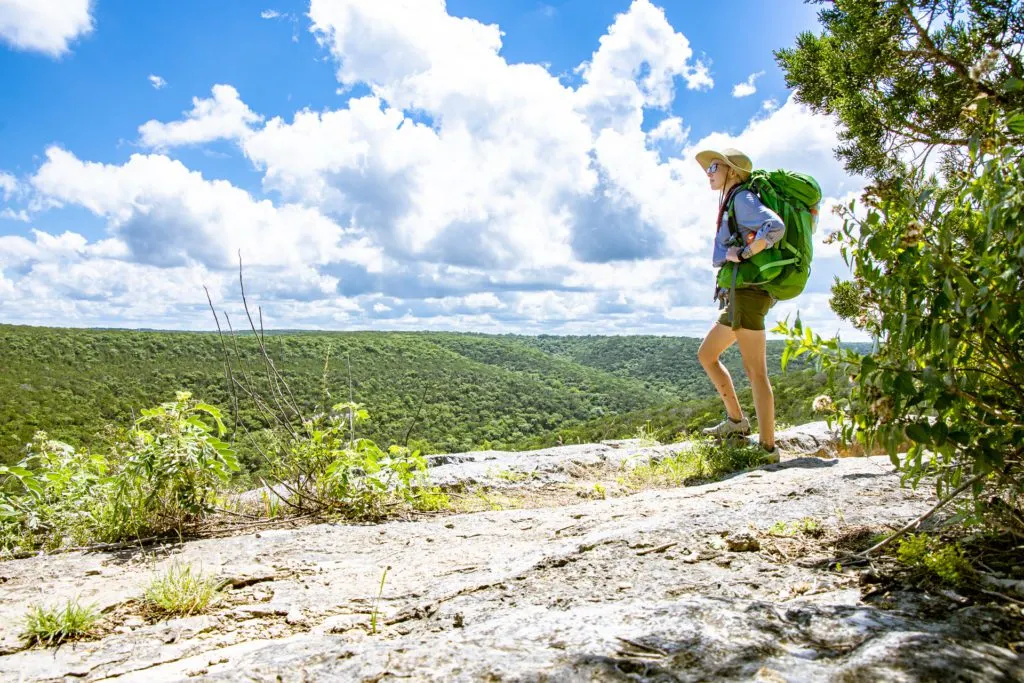
2. They Pack too Much (or too little)
It’s not uncommon for beginner backpackers to look at a list of things they usually bring on overnight trips not in the backcountry and end up with a pack full of more crap than they actually need for a few days in the woods or mountains. Chances are, you don’t need or won’t use half the stuff you bring. Here are some things we rarely pack now that we did pack when we first started backpacking: deodorant (you’ll stink – so what?), dish soap (that stuff just pollutes waterways, anyway), a bulky repair kit (a few feet of duct tape will do in a pinch), more than one change of clothes (if you’re not showering, you really don’t need fresh clothes every day), and a big knife (seriously, a pocketknife or multitool will do).
The more stuff you cram in your pack, the more weight you will have to carry every step of the way. And a heavy pack can quickly turn a pleasant weekend trip into an unenjoyable slog. So ditch the extraneous accessories.
On the flip side, don’t attempt to become an ultralight backpacker on your first time out. The gear is way more expensive and for those new to backcountry camping, the comforts you leave behind when ultralight packing can mean long, cold, dark nights in tents that aren’t really tents, which isn’t a good way for most people to break into backpacking. And if you didn’t enjoy yourself your first few times out, you’re not likely to do it again.
Here’s how to leave behind the unnecessary stuff next time: when you return home, empty your pack and sort through every single thing in it. There will undoubtedly be things you didn’t even touch while you were out there. If those items weren’t survival tools like a first aid kit or matches (you should always pack survival tools like those in the list of 10 essentials no matter what), make a note and don’t pack those items next time. Easy. Afraid you’ll pack too little? Make sure you bring everything you need by starting with a backpacking checklist.
3. They Don’t Pause to Enjoy the Journey
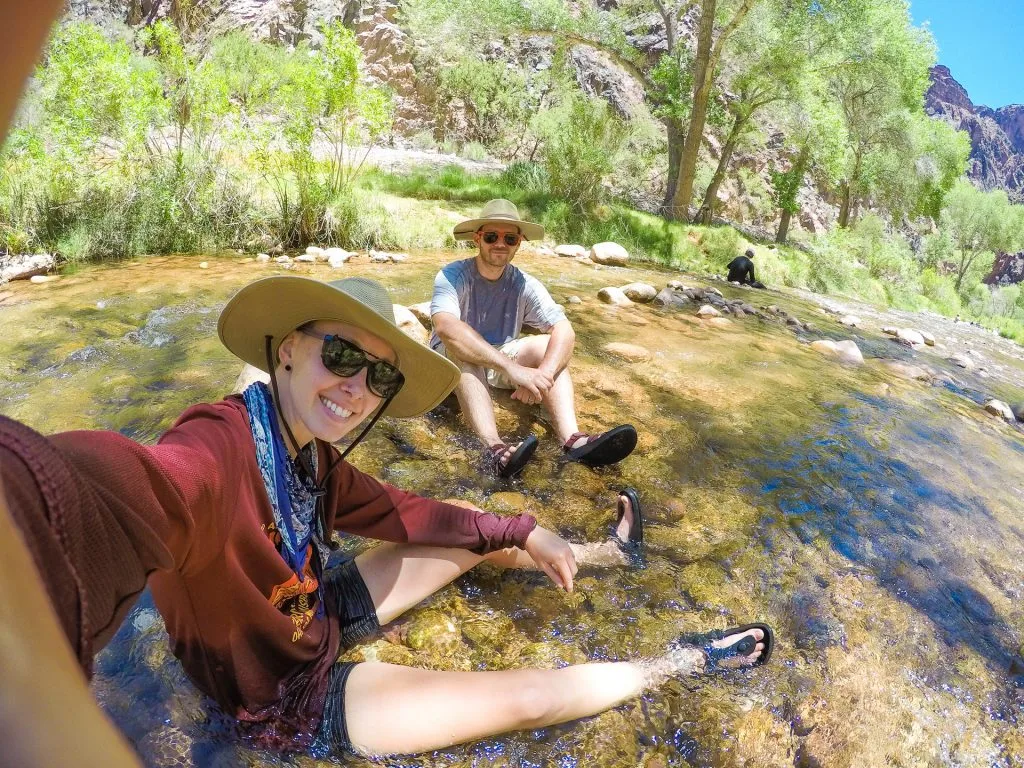
Another mistake beginner backpackers make is that they focus on the destination instead of the journey. But the miles aren’t as important as enjoying the journey. I’ll always remember starting a backpacking trip with some hiking buddies but parting ways when we got to our first campsite. They still had 6 miles to go before they could call it a day. They had to book it the rest of the way and still got to their site after dark. Meanwhile, we got to relax in the shade, soak our feet in the stream, enjoy the beautiful surroundings, and even take a little side trail the next morning that took us to the most spectacular waterfall of the entire trek! And they missed it all because they had to be at a certain point by a certain time.
Sometimes this is unavoidable (like for our companions who waited too late to get backcountry camping permits and had no choice but to take what was left – a site a hard 12 miles from their starting point in 120-degree heat), but usually, it’s up to us to set our pace. Beginner backpackers often make the mistake of being overly ambitious with mileage and end up just trying to reach their destination in time for dinner. But backpacking is about enjoying nature. So don’t overcommit, give yourself plenty of time to sit and enjoy the views, rest, have a snack, or even lay down and take a nap during the hottest part of the day, and you’ll enjoy the journey a lot more than if you’re racing the clock (and the map) to get to camp before dark.
And remember: some miles will be a lot slower than others. Wide, flat trails make for quick and easy miles that fly by, while narrow trails peppered with obstacles or that involve lots of ups and downs will take a lot longer to navigate.
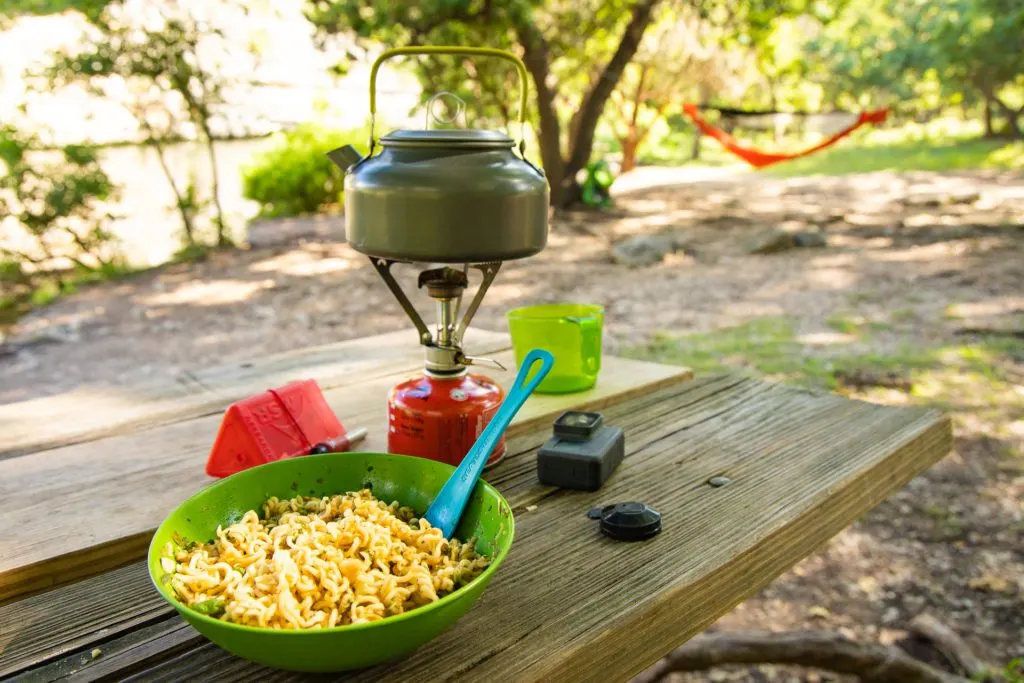
4. They Pack Too Much/Too Little Food (and the wrong kind)
Packing too much and the wrong kind of food was (and to some degree still is) my dad’s M.O. Growing up, he would pack cans of soup and boxes of Velveeta Mac & Cheese for dinner. At the time, I loved it! But I was 10 and didn’t have to carry any of those incredibly heavy items myself, so it worked out. But heavy food is not the best food to bring if you’re a beginner backpacker (See: They pack too much, above). That said, neither is bland, tasteless food. Bring meals that you look forward to eating but that don’t weigh two pounds per serving (we compiled a whole cookbook of plant-based backcountry recipes for this very reason).
But do make sure you eat enough on the trail because you’ll be burning a lot more calories than you usually do (use our hiking calorie calculator to figure out how many). You should be eating salty snacks regularly while hiking, especially in warm weather where you’re sweating a lot, but also calorically dense snacks and meals like nuts, protein bars and dried fruit. Assume you’ll eat more at dinner and breakfast than usual, too, so make sure to bring a bit more than you think you’ll need and you’ll figure out in a trip or two what’s enough to keep you going strong and what’s too much.
That goes for beverages, too. One of my favorite memories from backpacking rim-to-rim at Grand Canyon National Park with my parents is when they each pulled a gallon tiptop bag out of their packs 3/4 full of Gatorade powder. I had a good laugh for several minutes, then asked them why they brought so much as they couldn’t possibly imbibe that much Gatorade in three weeks in the outdoors, let alone four days. Needless to say, they hiked out with over half of it left (and that was after giving some to every person they thought looked dehydrated). Portions are key: Portion out snacks and meals so you can see how much you’ll actually need for every day you’re out there.
5. They Don’t Practice Leave No Trace Principles
We wrote a whole post on the 7 principles of Leave No Trace, but failing to adhere to these principles is one of the biggest mistakes beginner backpackers make. Here’s why: Your shoulders will stop aching, the blisters on your feet will heal, and you’ll learn what you do and do not need to bring with you next time, but the trash you leave behind, the waste you let contaminate creeks and streams, and the way your actions impact native plants and wildlife will have much longer-lasting repercussions. So be adamant about leaving no trace that you were ever out there to begin with. We all benefit from it.
The Bottom Line
We’re all beginners at some point, and we’ve all made the same mistakes beginner backpackers make, but hopefully we’ve helped you feel a little less like a beginner a little sooner so you can get out there and explore with confidence! Now load up that pack and wander on!

